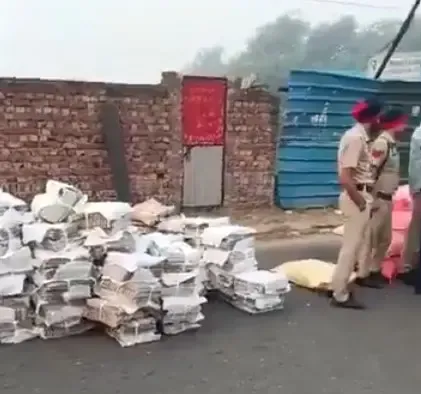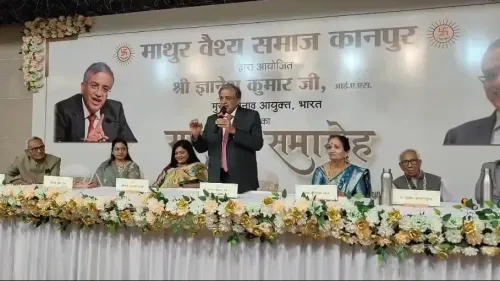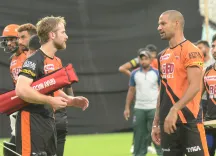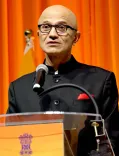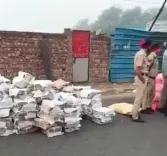Moily Criticizes BJP's Historical Ignorance Regarding ONOE Bill in Lok Sabha
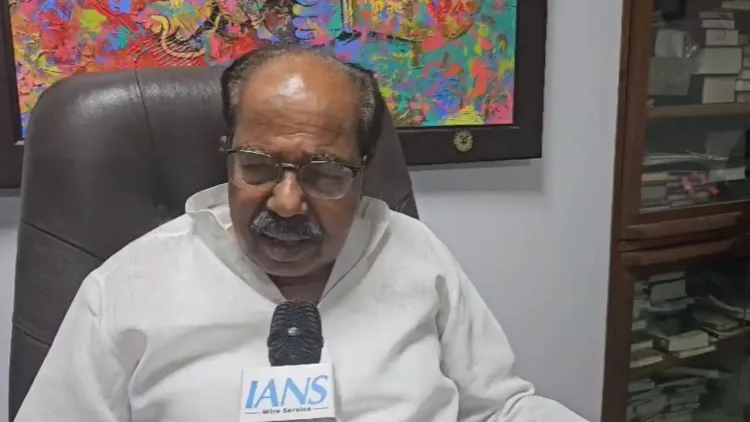
Karnataka, Dec 17 (NationPress) Congress leader and former Law Minister, M. Veerappa Moily, strongly criticized the BJP-led Central government for its initiative to table the ‘One Nation, One Election’ Bill (ONOE Bill) in the Lok Sabha, asserting that the current regime demonstrates a significant misunderstanding of the nation's historical background.
Union Law Minister Arjun Ram Meghwal presented the Constitution Amendment Bill, known as the ONOE Bill, in the Lok Sabha on Tuesday.
In an interview with IANS, Moily remarked, “This government appears to have a total lack of comprehension regarding our nation's history. They are attempting to convey the notion that the ONOE Bill is a groundbreaking concept, something transformative. However, this is far from accurate. From 1952 to 1967, simultaneous elections for both the Lok Sabha and state assemblies were conducted. The Congress and other political factions did not oppose this at that time. Yet, it was executed for historical reasons, not driven by any particular political ideology.”
Moily elaborated that elections in India are frequently swayed by unforeseen events, such as premature dissolutions of Assemblies or Parliament.
“Assemblies can dissolve before their terms conclude, or Parliament elections may occur earlier than scheduled. These historical occurrences have influenced how our elections have been organized. The current government appears eager to manipulate these events for political advantage,” he continued.
The former Law Minister accused Prime Minister Narendra Modi of leveraging the ONOE Bill to further his own political agenda.
“Prime Minister Modi seems to think that by decreasing the frequency of elections, he will save funds and eliminate the ‘multiplicity of elections.’ However, this is not a novel concept; it’s merely a historical fact. To imply that the late PM Jawaharlal Nehru desired split elections for the benefit of his party is misguided. Every action taken was for the national interest, not for political gain,” Moily stated.
He further remarked that PM Modi's advocacy for this notion is not in the interest of national welfare but rather to enhance his own image.
“If Modi believes that having just one election will help maintain his image, it’s a mere fantasy. Such a move will not fortify Modi’s ego as he might assume. This idea should have been discussed with the Opposition parties because elections are not solely for the ruling party; they are for the entire nation. This is the core issue,” Moily expressed.
Moreover, Moily criticized the hurried nature with which the Union government is attempting to pass this proposal, claiming that the central government lacks the necessary majority to approve the Bill in both Houses of Parliament.
“You cannot rush this through. There’s no absolute majority in the Houses for this Bill. The correct approach is to open this up for a national debate. A well-formed Bill can only arise from proper discussions, requiring consensus on various matters, not just one. The country needs time to contemplate this significant change,” he stated.
Moily warned that hastening the proposal could lead to further confusion rather than resolving current issues.
“There are numerous matters involved in this that rushing will only complicate. It will create more confusion than it resolves,” he cautioned.
The senior Congress leader also responded to Union Home Minister Amit Shah’s comments during discussions, in which he suggested that Prime Minister Modi is amenable to referring the ONOE Bill to a Joint Parliamentary Committee (JPC) for comprehensive assessment.
Moily dismissed this notion, asserting that the Congress party was not being 'negative' but rather constructive in addressing the matter appropriately.
“We are not negative, but we are realistic. The Congress has never been opposed to simultaneous elections. From 1952 to 1967, simultaneous elections were conducted without any complications. It’s not as if Modi or Amit Shah are introducing a new term. They seem oblivious; they are unaware of both the past and the future. Their focus is solely on the present as they aim to exploit the situation for their advantage,” Moily remarked.
He also voiced concerns over the practical implications of the proposal, emphasizing that numerous practical challenges must be tackled before implementing such a significant change.
“This isn’t merely a theoretical discussion. There are countless practical issues that need to be taken into account. This topic must not only be deliberated within Parliament; it should be publicly discussed so that every voice can be heard. The government should allow for a proper public debate, enabling a consensus to emerge,” Moily concluded.
Moily further emphasized that any political or administrative reform must consider the diverse perspectives and needs of the entire nation, rather than just the interests of the ruling party. He called for a more thorough and inclusive dialogue on this critical issue, urging the government to respect India's democratic processes by ensuring that the proposal undergoes comprehensive debate and evaluation in a transparent, national discussion.


